Bandipur Reserve Forest Highway Traffic Ban – A Debate
Organised by Institution of Engineers, Mysore
Date: 03 November 2019
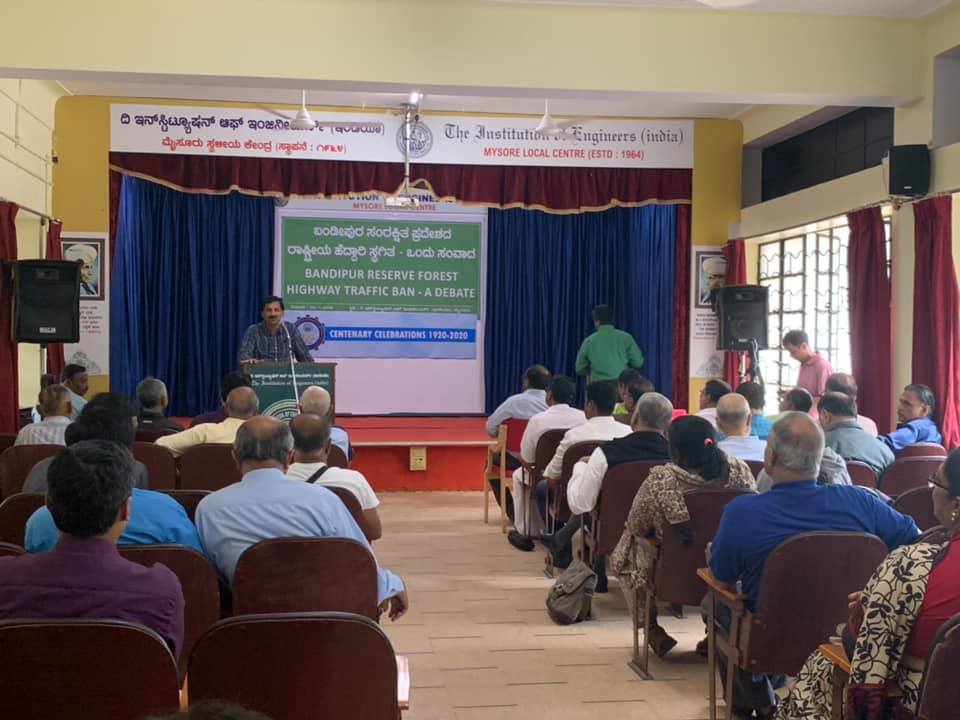
Some of the main highlights from the discussion are listed below:
Maj Gen Sudhir Vombatkere (Retd.) argued that human demands of development must comprehend natural limits. That disconnectedness between rural and urban India, between consumers and producers, of the gaps of perception between extractivism and aspirations of a good life have caused a tussle in our capacity to ‘find a pragmatic solution. But tigers and elephants and other wildlife don’t understand our need for pragmatism”. So, “how do we look at this issue in the long term, so rivers continues to flow?”

Vombatkere concluded by listing 6 concerns:
1) Value wisdom of Supreme Court – directed that an intelligent solution be found without deciding what it ought to be.
2) Protect forests to save rivers and build food security
3) Gundlupet, Wayanad, peoples concerns must be considered sensitively
4) There is an alternative – a 36 kms longer bypass
5) Need to build alternate markets that avoiding fragmenting forests
6) we are all one. Not Kerala vs Karnataka
Radhakrishna of Kalpetta, Wayanad said: “We are strongly dependent on Karnataka. If the night ban becomes a day-night ban, it is disastrous for us and our existence. We depend on grain and vegetables in Mysore district.”
Therefore, support “lift of night ban without affecting wildlife”.

Narayana Gowda of Mysore Hoteliers Association: “Movement of vehicles in the night exposes travelling population to various risks – vehicle breakdowns, accidents, emergency situations cannot be attended. Also exposed wildlife which move about more in the night, are at risk. So we support the night time ban. What is now is place is an adequate and appropriate measure.”
He also argued that night time travel through the forest exposes travelling public to risk of becoming victims of crime.
A total 24 hours ban on vehicle movement is unacceptable, as it causes a variety of problems for the public in all three states. It will disrupt people’s lives and livelihoods.
This should not become a tug of war between politicians of three states.
We need to protect our wildlife who protect our forests which provides us water, food and ecological and economic security.
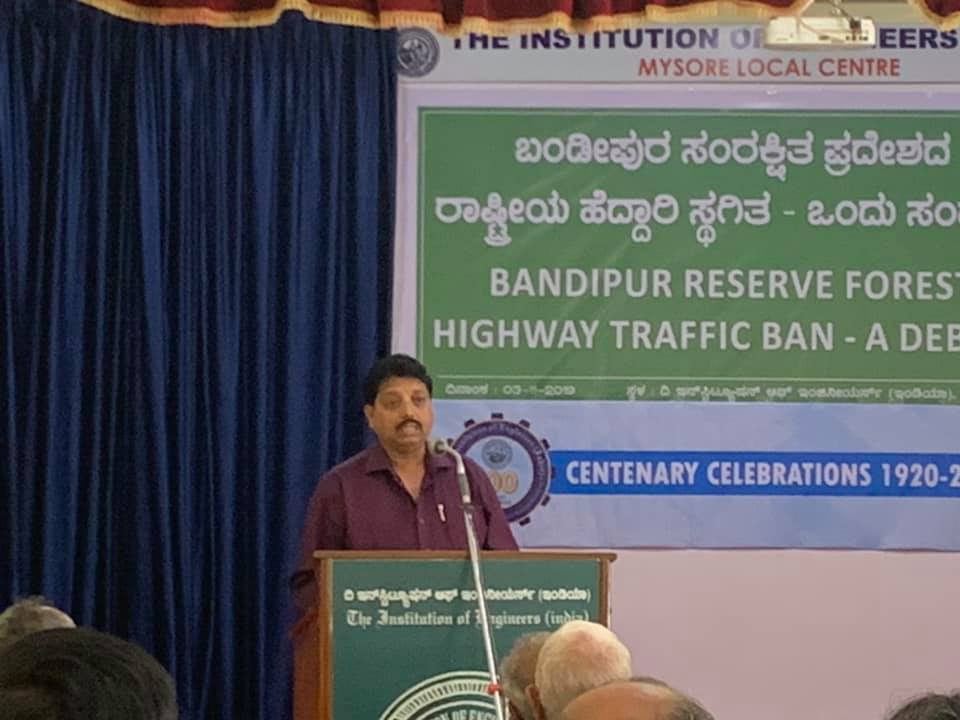
Col. Muthanna if Coorg Wildlife Society: “We are extremely concerned of the proposal of routing the traffic through Kodagu. This is going to be disastrous. We already have very heavy traffic of vehicles moving to Kerala, esp in night. If you totally close Bandipur access and divert through Kutta, it will intensify risk to wildlife in Kutta range, which is also teeming with wildlife. Human-elephant conflict in Kodagu and Wayanad May magnify if Bandipur access to Wayanad during day is closed. Support status quo.”
Tourism cannot muscle its way on ecologically fragile areas. “Kodagu has local population is 6 lakhs. Last year tourist footfall was 13 lakhs! This is disastrous as Kodagu provides a third of Cauvery water flows.”
Kerala must appreciate that there cannot be an exponential increase in roadways through Kodagu forests, totally destroying the ecosystem.
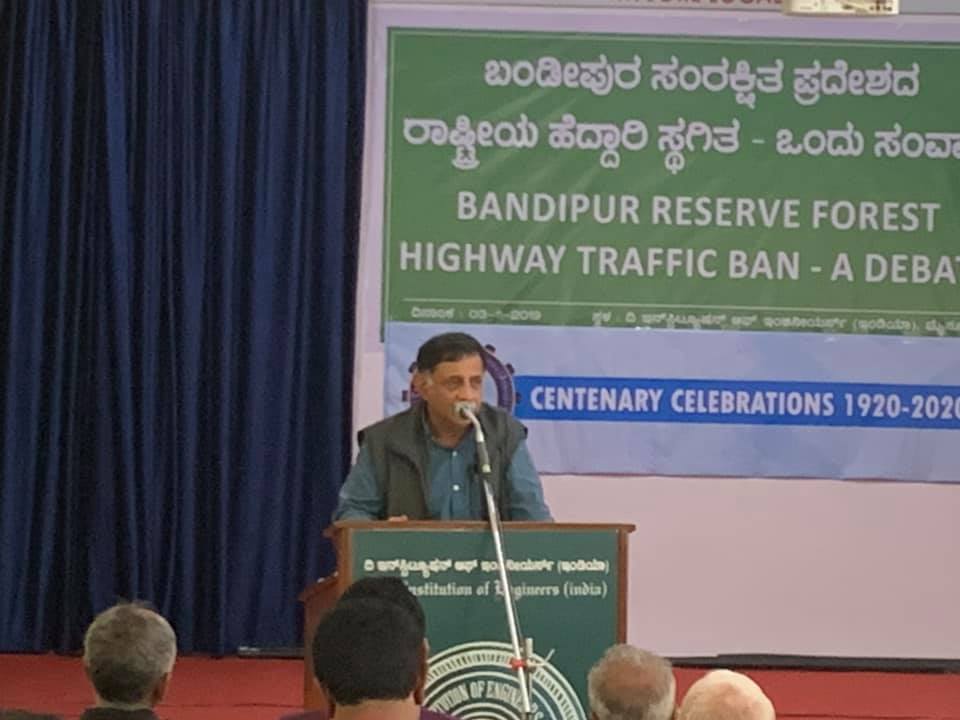
Advocate Gopinath of Wayanad: “National Highways Act, that guarantees right of passage, is in conflict with Wildlife Act, which is highly restrictive. Thousands of thousands are in protest to assert the right to passage. All political leaders are in support of the people.”
He continued, the Bandipur-Wayanad road was a mud road. But in 1990s it was elevated to national highway, even after the forests were declared as national forests under Wildlife Act. “It is impossible for us to move unless we go through forests. So if our movements through forests are restricted, where are we to go? How are we to access good hospitals in Mysore, If at night?”, he lamented.
Agricultural labourers, construction labour, traders, hotel and film industry is affected by ban. “Everybody is affected by night ban. We can compromise with night ban. We are not against wildlife. I have distributed 1 lakh saplings in Wayanad last year. Protection of some should not turn against the security of others.”
He continues: “To reach Gundlupet, it is difficult for us to take a 100 kms diversion through Kutta. It is for the forest Dept to take care or wildlife, not the citizens concerns. From the time of Vijayanagar empire through Tipu Sultan, to now, the road has been used”.
He asserted, “If anything, the road is to be protected. Even an elevated highway is possible. The freedom of movement has to be protected. Law is nothing but common sense. Is it common sense, sensible, to ask us to cover 20 kms (Bandipur to Wayanad) with a 100 kms diversion? The night ban has to be lifted.”

Balagopal, former IAS, and former UN official, now living in Wayanad: “We must consider the wise words of Vombatkere and appreciate forests produce water that sustains all our lives. We must take steps to protect forests that protects our lives and livelihoods.”
He continues: “It’s evident climate change is impacting us. Our farmers in Wayanad are worst affected by intense rains, extremely strong, much more than ever before, washing away all top soil, and then followed by drought – even earthworms were dying, all this is a result of climate change. Wayanad is like a water tower.”
“The length of the streams in Wayanad is 5000 kms. The first order and second order streams are gone. The larger rainfall thus rushes into rivers and floods them, result in devastation. Water, forest and soil is part of an integrated structure.”
“We are headed for a mass extinction. We need to decide that we do not want that to happen. It’s not a question of maintenance, even if we are hurt somewhat.”
“The suggestion of a complete closure of road cannot be considered as if affects normal course of life. But we must also consider that the necessity of night time closure. Research reveals that 70% of wildlife roadkills happens at night. Also, larger animals and larger here’s move in the night more, and are prone to risks of accident.”
“We have dry deciduous and wet deciduous forests between Bandipur and Wayanad, a complexity that is critical to supporting a large herbivore density. We must permit these animals to survive – the Nilgiri Biosphere is a blessing, the largest contiguous forest left in the country. This is a matter or pride. We have to build tourism that respects and protects this wealth, in respect of traditions that we have earned over generations.”
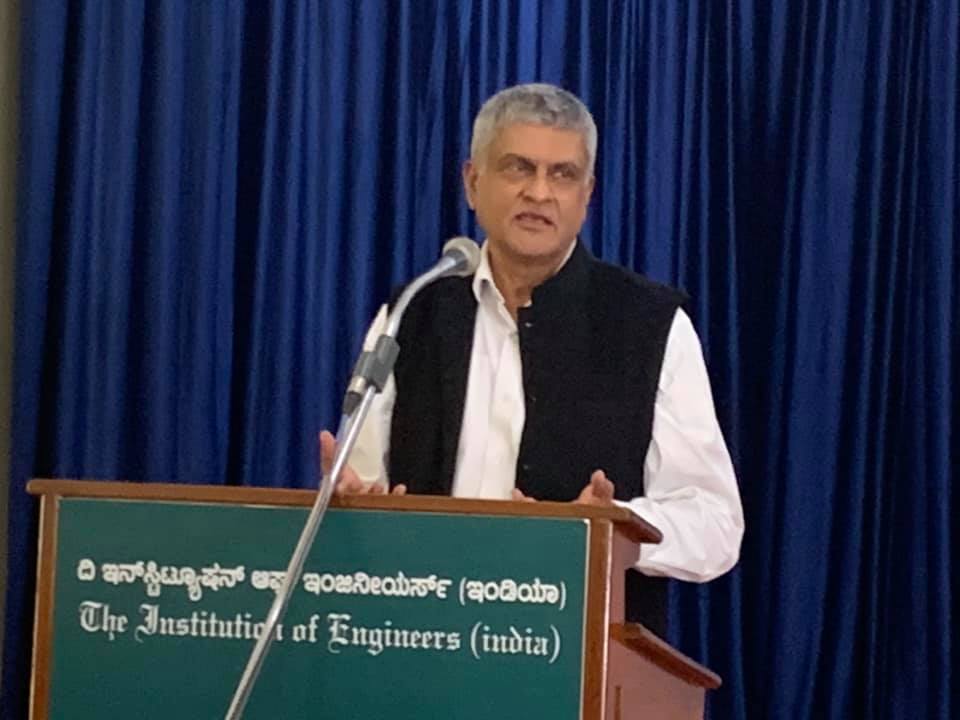
Subhash Madralli from Gundlupet: “Our entire economy and livelihoods are intricately dependent on the continue functioning of the Bandipur-Wayanad highway. 90% of the livelihoods of the area is agriculture dependent. Night time ban on traffic we have accepted. But let it not be an all time traffic, which will be devastating to all of us.”
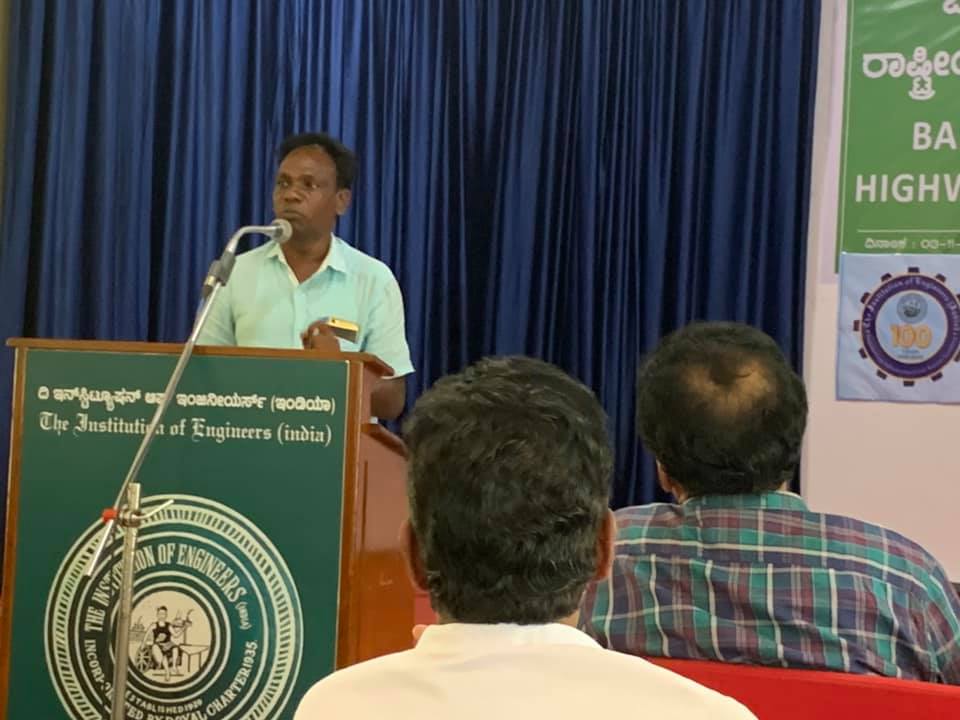
Sadananda from Kalpetta: “The Bandipur-Wayanad is critical for us. With all due respect to Supreme Court, the protection extended to wildlife must also be extended to human populations. It is doubtless that there are a few drunk drivers who are careless. But the restrictions by forest Dept, and the night time ban, has immensely helped. Accidents have come down. We cannot deny all this. But we also must acknowledge that Nanjungud industrial area and the IT sector of Blore which provides most jobs for students looking for jobs will suffer if the highway is blocked permanently. Kerala is a consumer state. No hesitation admitting we depend on Karnataka and Kerala for most of our food and services. Humbly request that at least day time access is allowed through Bandipur.”
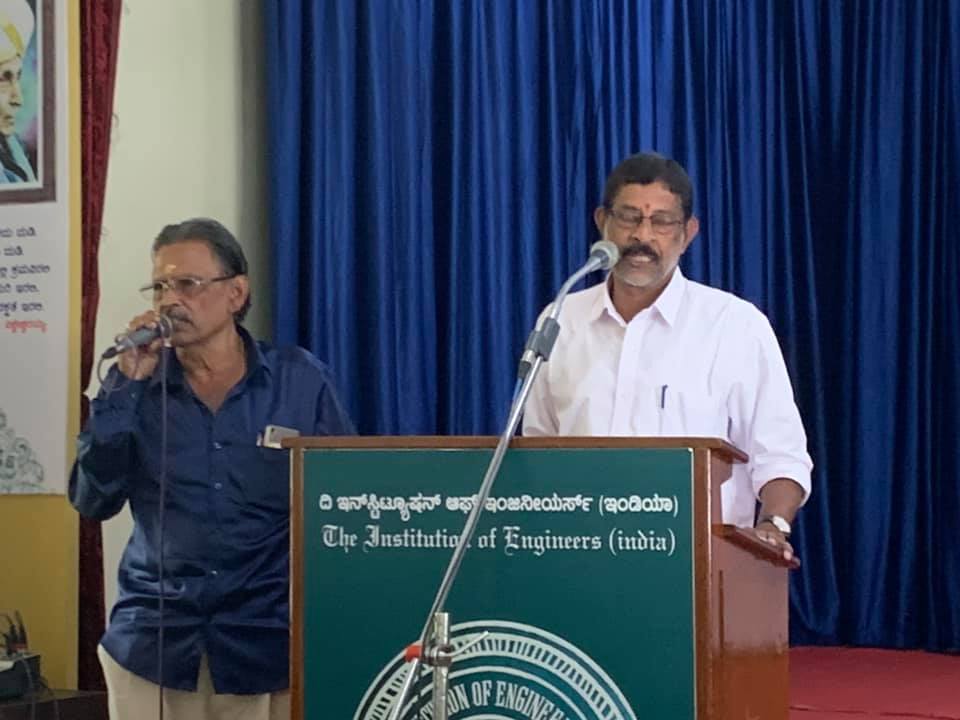
Rajkumar, Naturalist, part of National Tiger Conservation Authority: “there is a massive increase in traffic movement. The wildlife deaths from accidents are more than from poaching. We talked to everyone – the DCFs Of BAndipur, Wayanad, were talked to. But let’s realise that it is the animals that formed the forests, in the main. After careful cognisance of the risks that a night time ban was proposed and imposed. Silent roads allow animals to move. In 2002, a vehicle passed every 45 minutes on the BAndipur road. Now, there is a vehicle passing every second during the day. This relief we have extended to wildlife, has helped every one.”
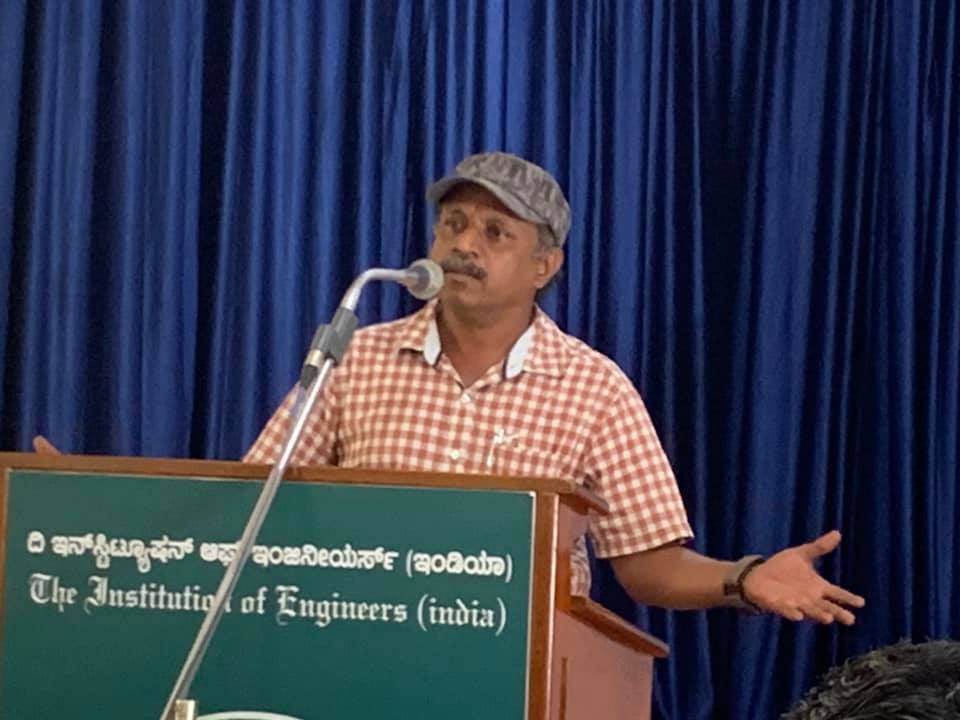
Rasheed of Wayanad: “the name Wayanad given by Ganga’s, then Hoysalas, Vijaynagar and finally Tipu Sultan. There are strong cultural and economic linkages between Kerala and Karnataka. The Chamrajnagar DC order of 2009 to ban night time traffic was taken without sufficient debates.”
“The alternative road through Kutta is as ecologically sensitive as Bandipur road. But there are real estate and other vested interests which want the Kutta road to develop as it works well for those invested in Kannur private airport. So there is more to this road debate than is revealed.”
National Teansport and Research Centre has provided an alternative road that leads only 13 kms through forests. In contrast National Highway 212 crosses 29 kms through forest. This alternative has to be considered by Supreme Court.”
Besides, “railway line between Nanjungud and Nilambur, involving tunnels, is the most Envtly friendly way to travel and must be considered.”

Leo F. Saldanha: The whole problem has to be perceived from a Public Trust Doctrinal perspective. That, while we have the right to assert the right of passage is part of our fundamental right, it is not unfettered. It is constrained by the nature of space and the use of that space. Given that it is one of the largest contiguous stretches of forest left in India, we need to be considerate to the demands of the wildlife, whose rights need advocacy as well. Building roads and rail networks through forests, and potentially causing their expansion due to our ever increasing aspiration to own vehicles and use them at will, is most certainly an effective way to destroy forests. The ecological collapse that would follow spares none.
At the same time, we need to consider that for people in Gundlupet, whose lives are intricately and substantially linked to consumption of vegetables they produce, in Kerala, it is also their right to livelihood that needs to be safeguarded.
The argument that night traffic restrictions trouble those in Kerala who need to reach hospital care in Mysore is really indicative of disparities in development. Kerala, which prides itself does excellent primary health care has neglected tertiary care. Whereas in Mysore the existence of excellent tertiary care does not guarantee affordability for all classes.
Markets must be developed in ways that they can sustain farmer produce with security of storage so that the reliance on daily transport can be reduced.
Most importantly, this is a debate that cannot be had without the direct involvement and participation of Adivasis, who protected the forests and were violently driven out by the creation of national parks. They are not in this debate. The Forest rights act 2006 demands that Forest Rights Committees should be the forum for such debates and not Urban spaces or the Legislatures of Kerala and Karnataka.
Rahul Gandhi as MP from Wayanad needs to raise the debate beyond parochial and binary assumptions. The Forest Departments must also work with district administration in taking these conversations to the local levels so solutions that emerge can protect forests for posterity and ensure sustenance of livelihoods does not suffer, by relying on collective intelligence.


It is absolutely misleading to say people of Wayanad depend on Mysore for healthcare. There is a multispeciality hospital called WIMS in Wayanad. People are normally taken to Kozhikode medical college. From Kalpetta, Kozhikode is 1.5hrs, whereas Mysore is 3hrs
Ironically, there is a new proposal to construct a medical college in Wayanad. Few years ago, a pristine mountain slope was denuded in the name of this medical college. Now they are shifting from that land because it is landslide prone…